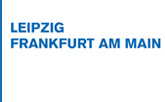Katalog der Deutschen Nationalbibliothek
Ergebnis der Suche nach: "Recife"
|
|
|
| Link zu diesem Datensatz | https://d-nb.info/133484142X |
| Titel | Artificial Intelligence in Education. Posters and Late Breaking Results, Workshops and Tutorials, Industry and Innovation Tracks, Practitioners, Doctoral Consortium and Blue Sky : 25th International Conference, AIED 2024, Recife, Brazil, July 8–12, 2024, Proceedings, Part I / edited by Andrew M. Olney, Irene-Angelica Chounta, Zitao Liu, Olga C. Santos, Ig Ibert Bittencourt |
| Person(en) |
Olney, Andrew M. (Herausgeber) Chounta, Irene-Angelica (Herausgeber) Liu, Zitao (Herausgeber) Santos, Olga C. (Herausgeber) Bittencourt, Ig Ibert (Herausgeber) |
| Organisation(en) | SpringerLink (Online service) (Sonstige) |
| Ausgabe | 1st ed. 2024 |
| Verlag | Cham : Springer Nature Switzerland, Imprint: Springer |
| Zeitliche Einordnung | Erscheinungsdatum: 2024 |
| Umfang/Format | Online-Ressource, XLVII, 515 p. 109 illus., 81 illus. in color. : online resource. |
| Andere Ausgabe(n) |
Printed edition:: ISBN: 978-3-031-64314-9 Printed edition:: ISBN: 978-3-031-64316-3 |
| Inhalt | -- Blue Sky. -- Aligning AIED Systems to Embodied Cognition and Learning Theories. -- Ethical AIED and AIED Ethics: Toward Synergy Between AIED Research and Ethical Frameworks. -- Enhancing LLM-Based Feedback: Insights from Intelligent Tutoring Systems and the Learning Sciences. -- Flowing through Virtual Realms: Leveraging Artificial Intelligence for Immersive Educational Environments. -- Industry, Innovation and Practitioner. -- The Impact of Example Selection in Few-shot Prompting on Automated Essay Scoring Using GPT Models. -- Bringing AIED, Public Policy and GDPR To Promote Educational Opportunities in Brazil. -- Towards Explainable Authorship Verification: An Approach to Minimise Academic Misconduct in Higher Education. -- AI in K-12 Social Studies Education: A Critical Examination of Ethical and Practical Challenges. -- Enhancing Programming Education with ChatGPT: A Case Study on Student Perceptions and Interactions in a Python Course. -- LANSE: A cloud-powered learning analytics platform for the automated identification of students at risk in learning management systems. -- Parsing Post-Deployment Students’ Feedback: Towards a StudentCentered Intelligent Monitoring System to Support Self-Regulated Learning. -- How Do Strategies for Using ChatGPT Affect Knowledge Comprehension?. -- Automatic Lesson Plan Generation via Large Language Models with Self-Critique Prompting. -- Systematic Needs Analysis of Advanced Digital Skills for Postgraduate Computing Education: The DIGITAL4Business Case. -- WideAIED. -- Predictive Model of School Dropout Based on Undergraduate Course Self-Assessment Data. -- Expectations of higher education teachers regarding the use of AI in education. -- Brilla AI: AI Contestant for the National Science and Maths Quiz. -- Exploring NLP and Embedding for Automatic Essay Scoring in the Portuguese. -- Enhancing General Reading Understanding: measuring foundational reading skills relevance. -- Gendered Responses to AI Governance: Insights from a Quantitative National Survey on ChatGPT Usage Among Students and Educators. -- Global trends in scientific debates on trustworthy and ethical Artificial Intelligence and education. -- ChatGPT-based Virtual Standardized Patient that Amends Overly Detailed Responses in Objective Structured Clinical Examinations. -- Contextual Features for Automatic Essay Scoring in Portuguese. -- Breaking the Cycle: AI Boosting Communication Skills of Low-Income Students in Brazil. -- Late-Breaking Results. -- Towards Human-like Educational Question Generation with Small Language Models. -- Large Language Models for Career Readiness Prediction. -- Difficulty-Controllable Multiple-Choice Question Generation for Reading Comprehension Using Item Response Theory. -- Can VLM Understand Children’s Handwriting? An Analysis on Handwritten Mathematical Equation Recognition. -- To Kill a Student’s Disengagement: Personalized Engagement Detection in Facial Video. -- Automated Detection and Analysis of Gaming the System in Novice Programmers. -- Implementation and evaluation of impact on student learning of an automated platform to score and provide feedback on constructed-response problems in chemistry. -- An Interpretable Approach to Identify Performance Indicators within Unstructured Learning Environments. -- Masked Autoencoder Transformer for Missing Data Imputation of PISA. -- Effective and Scalable Math Support: Experimental Evidence on the Impact of an AI-Math Tutor in Ghana. -- Interpret3C: Interpretable Student Clustering Through Individualized Feature Selection. -- Recurrent Neural Collaborative Filtering for Knowledge Tracing. -- EDEN: Enhanced Database Expansion in eLearning: A Method for Automated Generation of Academic Videos. -- Automatic Short-Answer Grading in College Mathematics Using In-context Meta-learning: An Evaluation of the Transferability of Findings. -- Enhancing Algorithmic Fairness in Student Performance Prediction through Unbiased and Equitable Machine Learning Models. -- Leveraging GPT-4 for Accuracy in Education: A Comparative Study on Retrieval-Augmented Generation in MOOCs. -- A Personalized Multi-region Perception Network for Learner Facial Expression Recognition in Online Learning. -- Neural Automated Essay Scoring for Improved Confidence Estimation and Score Prediction through Integrated Classification and Regression. -- An Intelligent System for Chinese Dance Creation using Generative Artificial Intelligence. -- Leveraging Language Models and Audio-Driven Dynamic Facial Motion Synthesis: A New Paradigm in AI-Driven Interview Training. -- Potential Pitfalls of False Positives. -- Predictive Modelling with the Open University Learning Analytics Dataset (OULAD): A Systematic Literature Review. -- GAMAI, an AI-powered Programming Exercise Gamifier tool. -- Generating Contextualized Mathematics Multiple-Choice Questions Utilizing Large Language Models. -- Generative AI in K-12: Opportunities for Learning and Utility for Teachers |
| Persistent Identifier |
URN: urn:nbn:de:101:1-2407040528072.244271140050 DOI: 10.1007/978-3-031-64315-6 |
| URL | https://doi.org/10.1007/978-3-031-64315-6 |
| ISBN/Einband/Preis | 978-3-031-64315-6 |
| Sprache(n) | Englisch (eng) |
| Beziehungen | Communications in Computer and Information Science ; 2150 |
| Sachgruppe(n) | 370 Erziehung, Schul- und Bildungswesen |
| Online-Zugriff | Archivobjekt öffnen |

